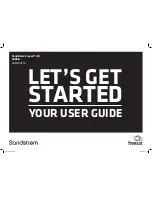
96
En
■
Can’t learn commands from another remote
controller
■
Can’t record
■
There’s no sound
■
The Zone 2 speakers produce no sound
■
Can’t access the server or Internet radio
■
Playback stops while listening to music files on
the server
■
Can’t connect to the AV receiver from a Web
browser
■
Can’t access the music files on a USB device
■
Stand-by power consumption
■
The sound changes when I connect my
headphones
■
The speaker distance cannot be set as required
■
How do I change the language of a multiplex
source
To control an Integra/Onkyo component that’s con-
nected via
u
, point the remote controller at the AV
receiver. Be sure to enter the appropriate remote con-
trol code first.
To control an Integra/Onkyo component that’s not
connected via
u
, point the remote controller at the
component. Be sure to enter the appropriate remote
control code first.
The entered remote control code may not be correct.
If more than one code is listed, try each one.
—
When learning commands, make sure that the trans-
mitting ends of both remote controllers are pointing
at each other.
—
Are you trying to learn from a remote controller that
cannot be used for learning? Some commands can-
not be learned, especially those that contain several
instructions.
—
Recording
On your recorder, make sure the correct input is
selected.
—
To prevent signal loops and damage to the AV
receiver, input signals are not fed through to outputs
with the same name (
VCR/DVR
IN
to
VCR/DVR
OUT
).
—
Zone 2
Only components connected to analog inputs can be
played in Zone 2.
—
Powered Zone 2 cannot be used if “
Speakers
Type(Front)
” is set to “
Bi-Amp
”.
To use the Zone 2 speakers, you must set the “
Pow-
ered Zone 2
” setting to “
Act
”.
Music Server and Internet Radio
Check the network connection between the AV
receiver and your router or switch.
—
Make sure that your modem and router are properly
connected, and make sure they are both turned on.
—
Make sure the server is up and running and compati-
ble with the AV receiver.
Check the “Network Settings”.
Make sure your server is compatible with the AV
receiver.
If you download or copy large files on your com-
puter, playback may be interrupted. Try closing any
unused programs, use a more powerful computer, or
use a dedicated server.
—
If the server is serving large music files to several
networked devices simultaneously, the network may
become overloaded and playback may be inter-
rupted. Reduce the number of playback devices on
the network, upgrade your network, or use a switch
instead of a hub.
—
If you’re using DHCP, your router may not always
allocate the same IP address to the AV receiver, so if
you find that you can’t connect to a server or Internet
radio station, recheck the AV receiver’s IP address
on Network screen.
—
Check the
USB Mass Storage Device Playback
Make sure the USB device is plugged in properly.
—
The AV receiver supports USB devices that support
the USB mass storage device class. However, play-
back may not be possible with some USB devices
even if they conform to the USB mass storage device
class.
—
USB memory devices with security functions cannot
be played.
—
Others
In the following cases, the power consumption could
reach a maximum of 50W:
1.
You are using the Universal Port jack.
2.
“
Control
” is set to “
Enable
” in the “
Network
”
setting.
3.
“
HDMI Control (RIHD)
” setting is set to
“
On
”. (Depending on the TV status, the AV
receiver will enter Standby mode as usual.)
,
When a pair of headphones is connected, the listen-
ing mode is set to Stereo, unless it’s already set to
Stereo, Mono or Direct.
—
In some cases, corrected values suitable for home
theater use may be set automatically.
—
Use the “
Multiplex
” setting on the “
Audio Adjust
”
menu to select “
Main
” or “
Sub
”.









































